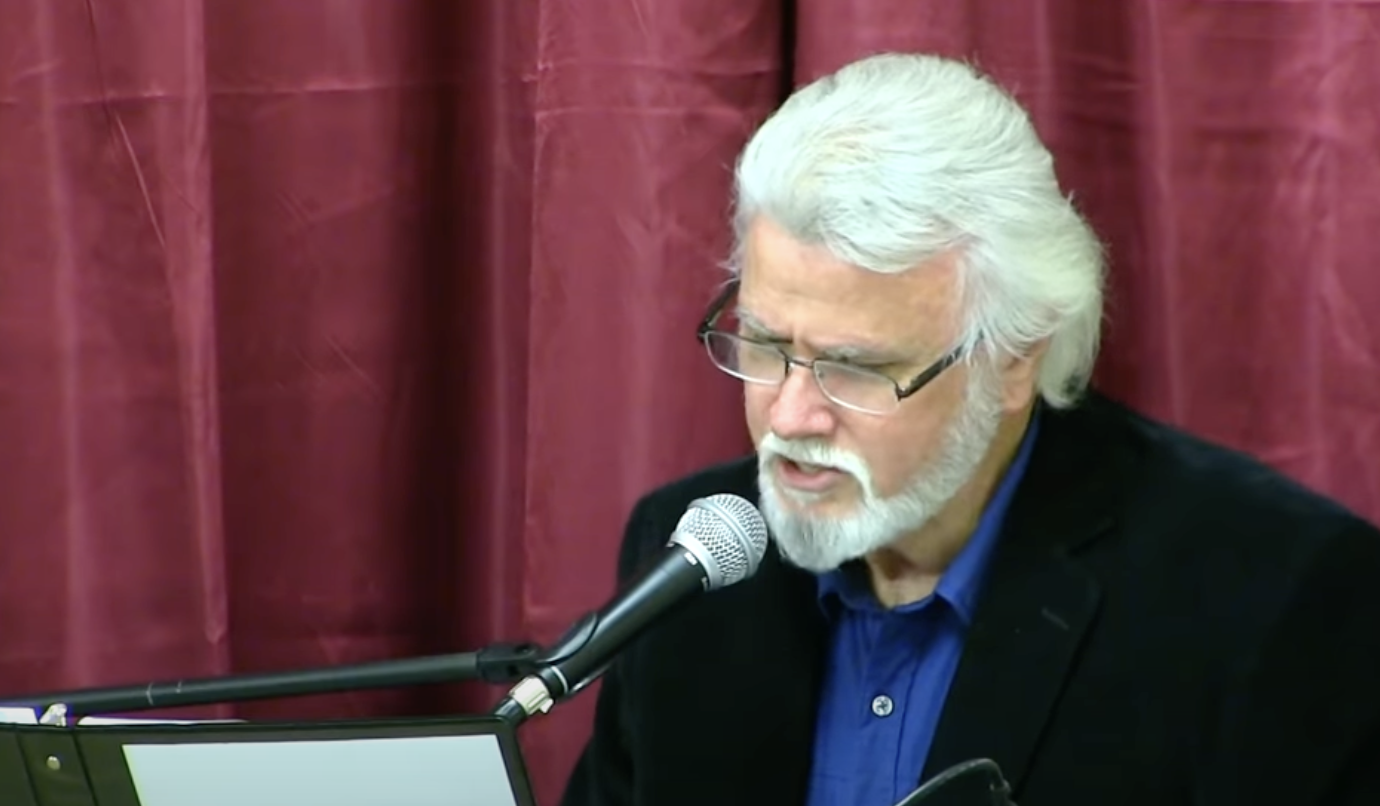Robert Joyce, a priest from a quiet rural town in central Arkansas, has sparked a fascinating internet debate. The reason? His voice bears an uncanny resemblance to that of Elvis Presley, the legendary King of Rock and Roll. A video featuring Joyce recently went viral, captivating audiences and leaving many wondering about his identity.
Among those intrigued by Joyce is Tom Mennel, a lifelong Elvis fan who recently shared his thoughts in an interview with The Express. Mennel, now 61 years old, has been an avid admirer of Elvis since he was just six. Yet, despite his decades-long dedication to the King, he is convinced that Robert Joyce might actually be Elvis himself. Mennel believes that, one day, Joyce will unveil the truth about his identity.

“I hope Mr. Joyce will come clean about who he is because he reminds me so much of Elvis,” Mennel said. He suggested that there could be a deeper, even spiritual, reason behind Joyce’s familiar voice. “Perhaps God is using Elvis’ voice to minister to broken hearts and lives,” Mennel added, reflecting on the profound emotional impact of hearing someone who sounds so much like the iconic singer.
Mennel went on to speculate about what he would say if Elvis were still alive. “If he were alive, I would tell him, ‘My friend and brother, we are kindred spirits,’” Mennel shared. “In Christ, we are one.” His words highlighted a sense of connection that transcends time and fame, linking faith and shared humanity with the powerful legacy of Elvis Presley.
This viral sensation has reignited conversations about cultural icons and their lasting influence. Elvis Presley, who passed away in 1977, continues to captivate hearts and spark curiosity nearly half a century after his death. The phenomenon surrounding Robert Joyce underscores how deeply ingrained figures like Elvis are in the American cultural psyche.
The internet, with its unparalleled ability to connect and amplify voices, has played a pivotal role in this story. Videos like the one featuring Robert Joyce not only entertain but also provoke discussion, inviting people to question and explore. The very notion that someone might believe Elvis could still be alive speaks to the profound impact he had on the world and the personal connections fans feel to him.
Elvis Presley was more than a singer—he was a cultural revolution. His blend of gospel, blues, and rock and roll reshaped music, challenged societal norms, and created a new kind of celebrity. To this day, his influence is evident in modern music, fashion, and even attitudes toward fame. People who grew up during Elvis’ heyday often recall his voice as the soundtrack of their lives, a constant companion through pivotal moments.
For fans like Mennel, the idea that someone could embody the essence of Elvis through their voice is deeply moving. It’s not just about mimicry—it’s about the emotional resonance that comes with hearing something so familiar, so powerful, that it feels almost otherworldly. This sentiment is likely why the video of Robert Joyce gained such traction. In a world where nostalgia often serves as a comforting escape, Joyce’s voice struck a chord with millions, reminding them of a time when Elvis’ music dominated the airwaves.
The story also touches on broader themes of identity and belief. Why are so many people captivated by the idea that Elvis might still be alive or that his spirit could live on through others? Part of the answer lies in the human need to hold onto icons who represent something greater than themselves. For many, Elvis symbolizes a golden era of American music and culture, an era they long to revisit or preserve.
Social media, of course, amplifies these conversations. Platforms like YouTube and TikTok allow videos to reach audiences far beyond what was possible in Elvis’ time. The viral nature of Robert Joyce’s video demonstrates how easily modern technology can turn a simple moment into a cultural phenomenon. In this case, it has also sparked debates about faith, memory, and the enduring power of music.
Interestingly, this isn’t the first time Elvis’ legacy has fueled speculation or inspired spiritual connections. Over the years, countless fans have reported “Elvis sightings,” claiming to have seen the King in everyday places like diners, gas stations, or even churches. While most of these claims are dismissed as urban legends or wishful thinking, they reflect the persistent fascination with the man behind the music. People want to believe that Elvis, in some form, still walks among us.
Robert Joyce’s story, however, takes this idea to a new level. It’s not about a fleeting glimpse of a familiar face but a voice that seems to echo from the past, calling out to fans in a way that feels almost divine. Whether or not Joyce has any direct connection to Elvis, his story has become a testament to the King’s enduring impact.
At its core, this phenomenon isn’t just about music or nostalgia—it’s about connection. Fans like Tom Mennel feel a bond with Elvis that transcends time and space. For Mennel, that bond is deeply spiritual, rooted in his faith and belief in shared humanity. The idea that Elvis’ voice could be used as a vessel for healing or inspiration speaks to the profound way in which music touches our souls.
As the video of Robert Joyce continues to circulate, it serves as a reminder of the incredible power of cultural icons to shape our lives, even decades after they’re gone. Elvis Presley’s voice, whether heard through a recording, an impersonator, or someone like Robert Joyce, remains a source of comfort, joy, and reflection for millions. In a world that often feels chaotic and uncertain, that familiar voice offers a sense of continuity—a link to a simpler time and a brighter, more hopeful vision of the future.
Ultimately, this story is about more than just one man’s voice. It’s about the legacy of Elvis Presley and the enduring impact of his music and spirit. It’s about the ability of a viral video to spark meaningful conversations and remind us of the timeless connections that bind us all together. Whether or not Robert Joyce is Elvis reincarnated, his voice has undoubtedly reignited a spark of curiosity, nostalgia, and faith in a way that only the King of Rock and Roll could inspire.





